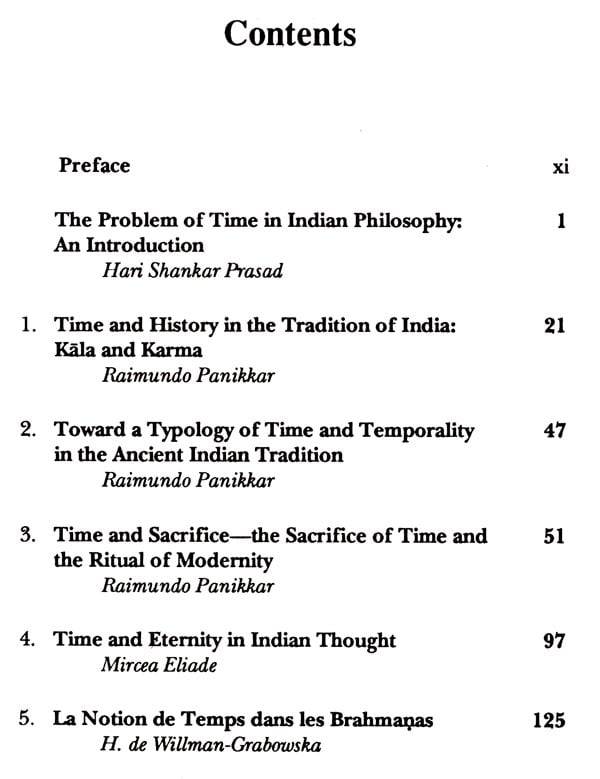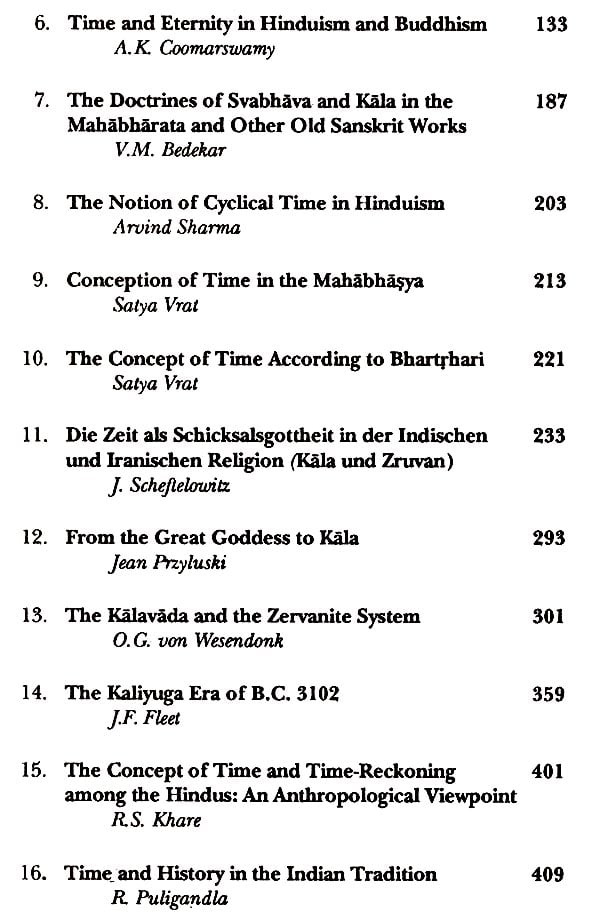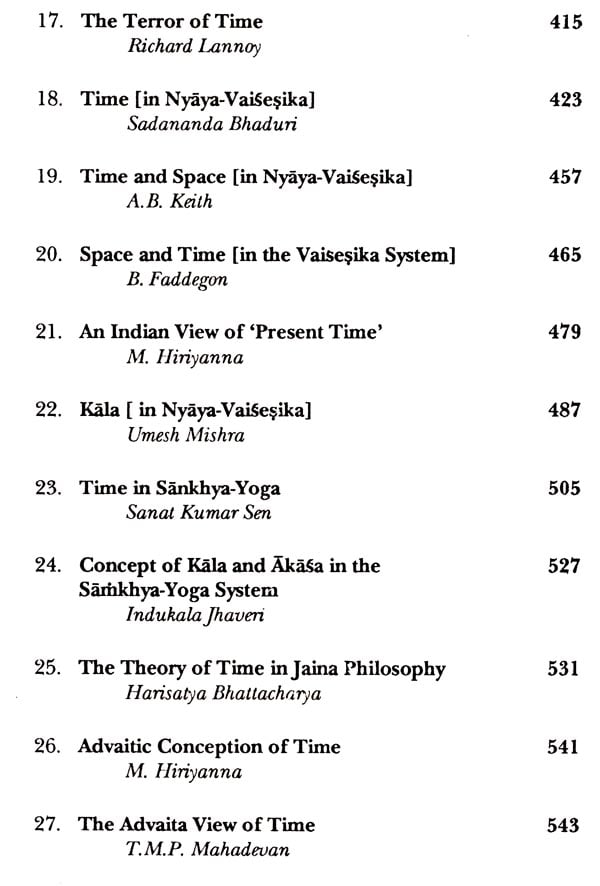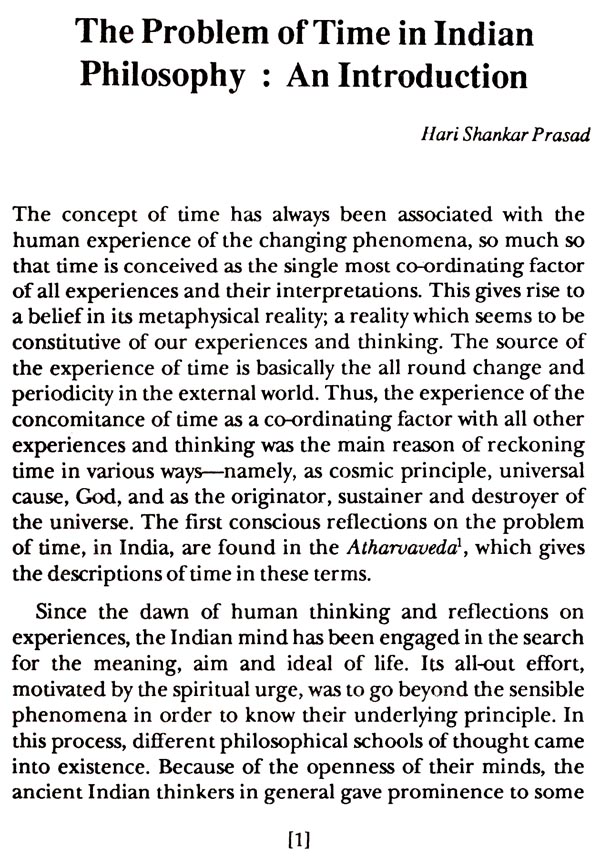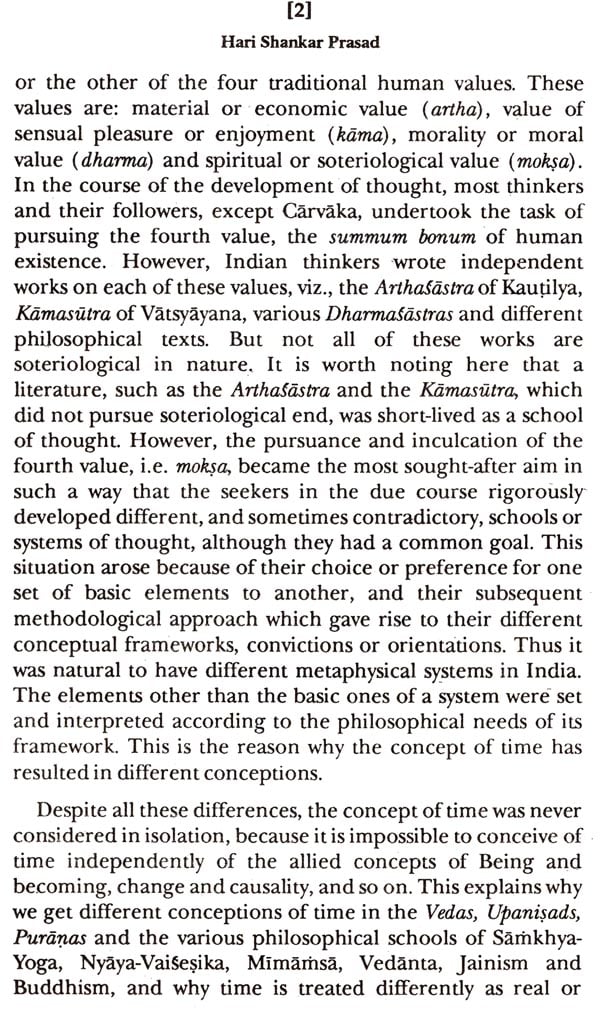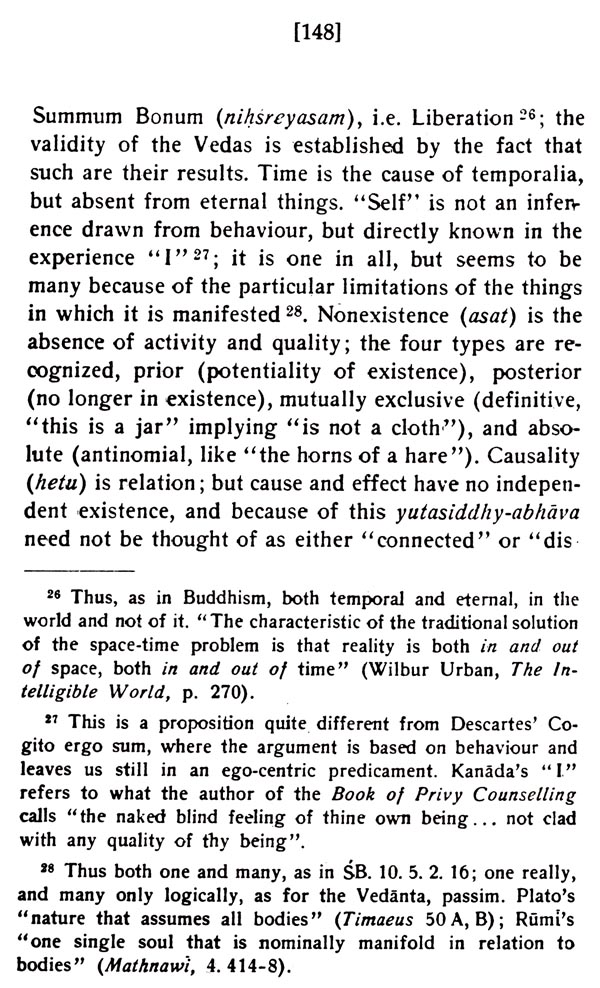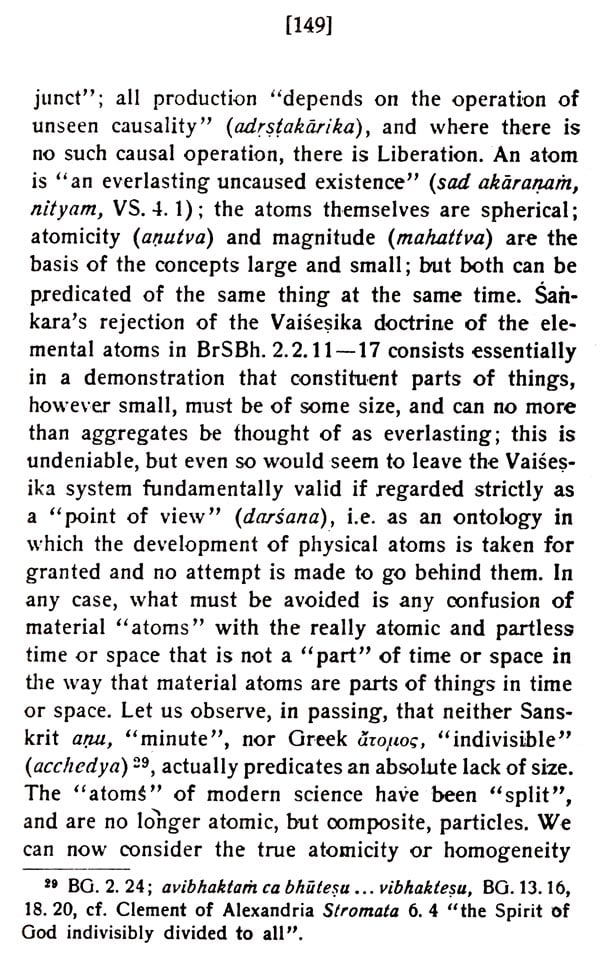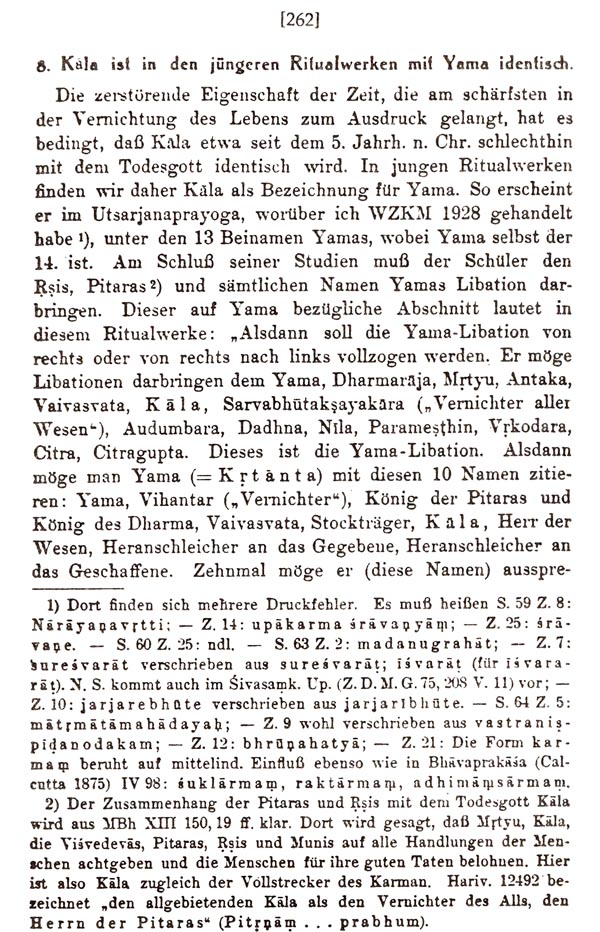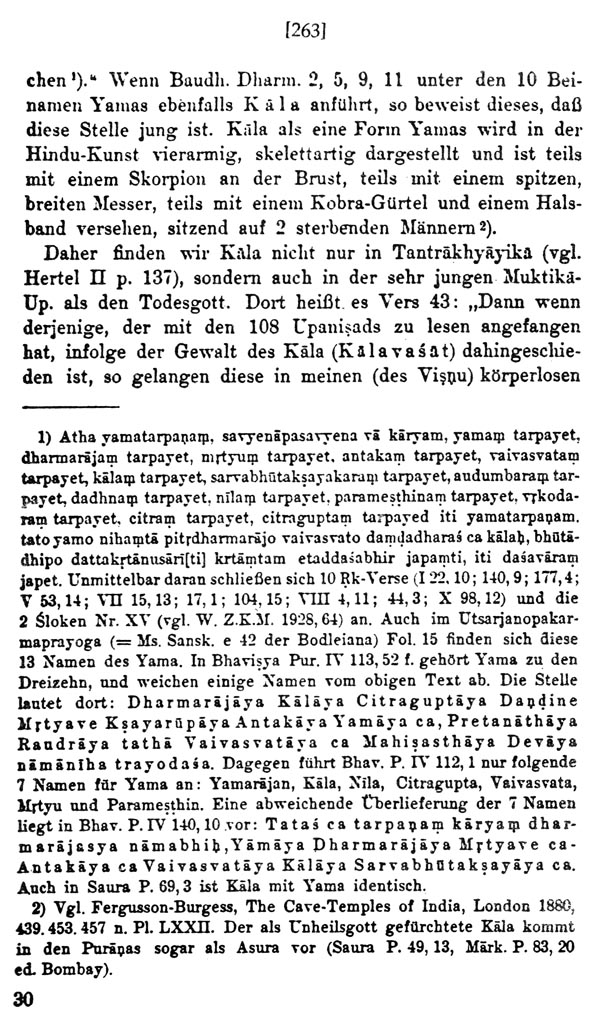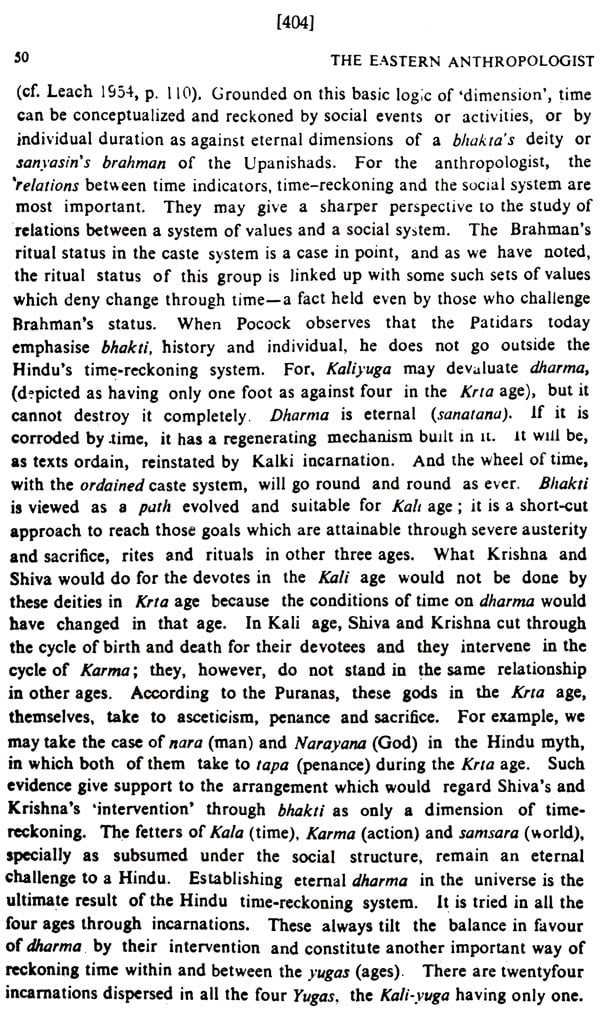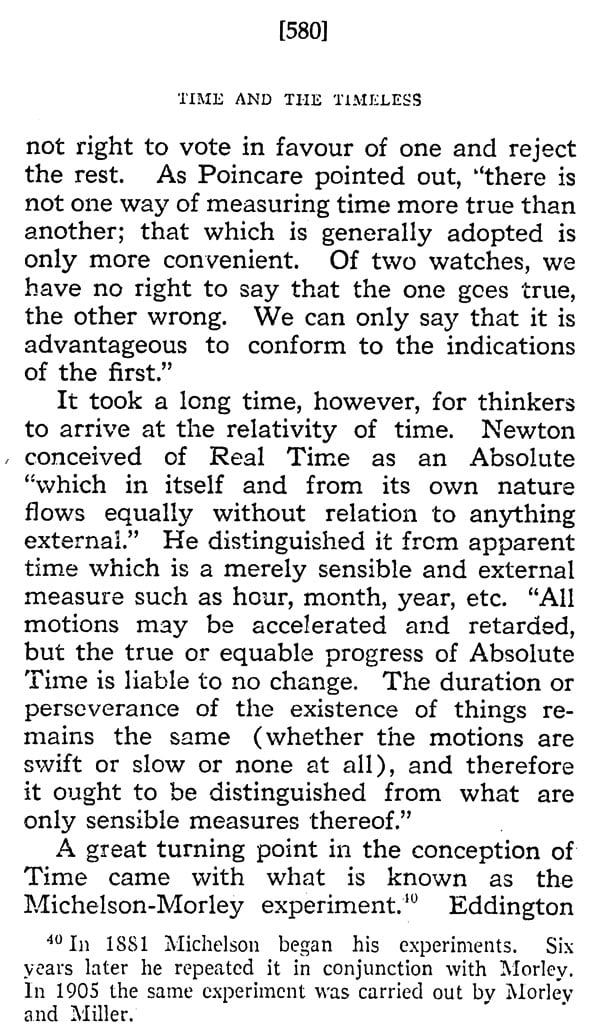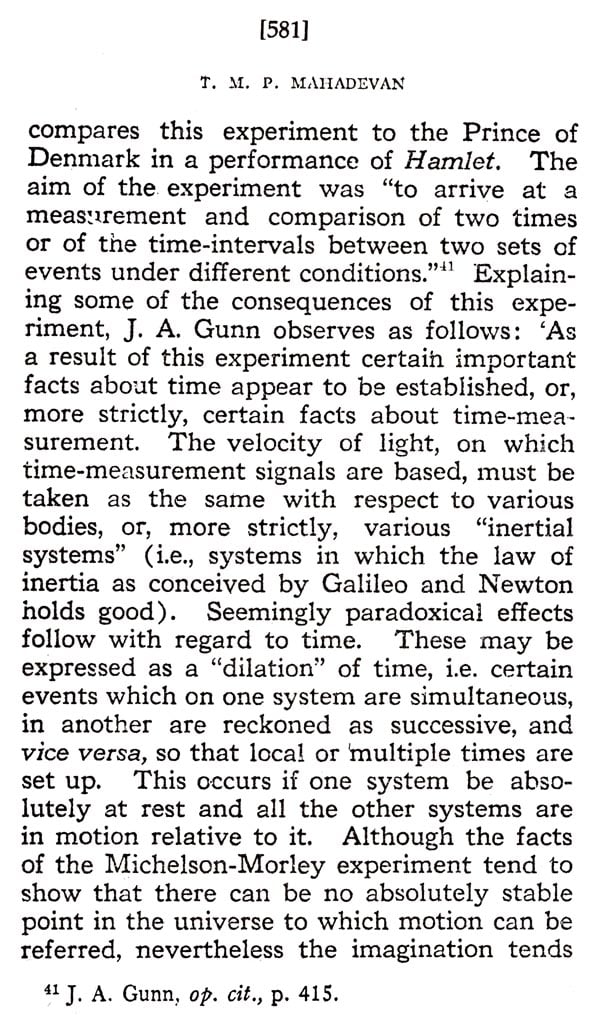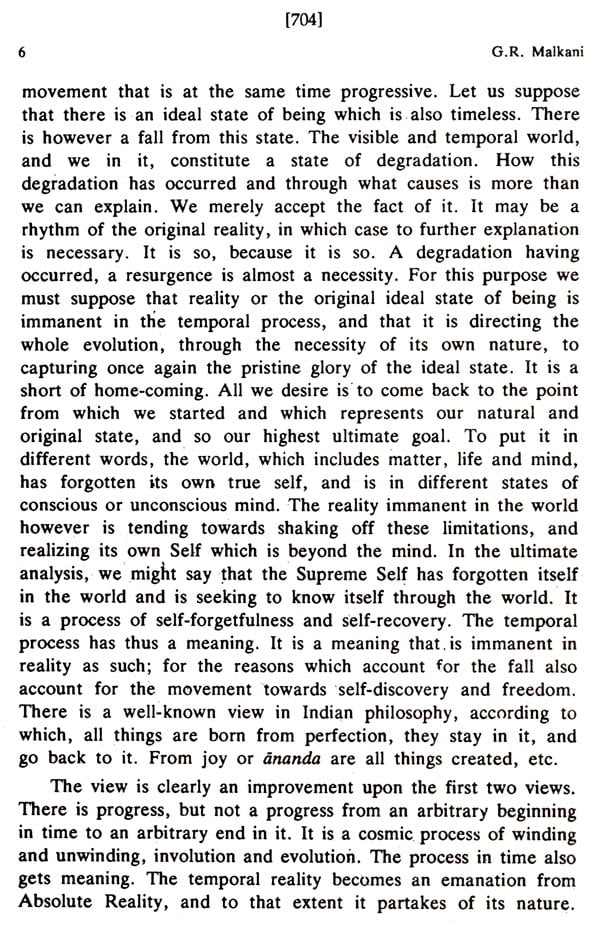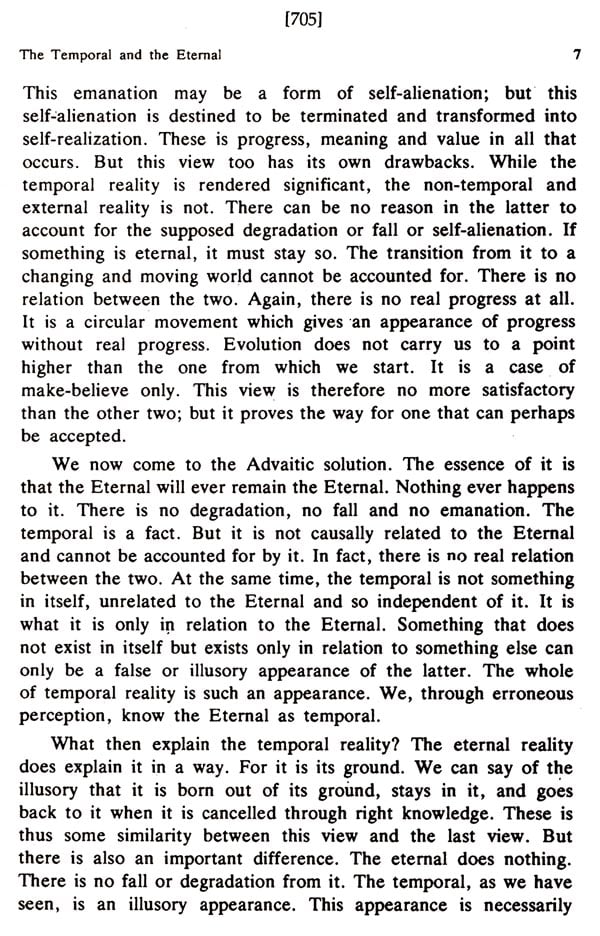
Time in Indian Philosophy (A Collection of Essays)
Book Specification
| Item Code: | NAR755 |
| Author: | Hari Shankar Prasad |
| Publisher: | Sri Satguru Publications |
| Language: | English |
| Edition: | 1992 |
| ISBN: | 8170302676 |
| Pages: | 750 |
| Cover: | HARDCOVER |
| Other Details | 9.00 X 6.00 inch |
| Weight | 940 gm |
Book Description
This is a collection of essays and passages on time in non-Buddhist philosophical systems of India. These essays were originally published in various journals and books, most of which are now inaccessible. The primary aim of reprinting them herein is to make them available to interested readers and researchers. The contributors, some of whom are great stalwarts of Indian philosophy, are:
Raimundo Panikkar, Mircea Eliade, H. de Willman-Grabowska, A.K Coomarswamy, V.M. Bedekar, Arvind Sharma, Satya Vrat, J. Scheftelowitz, Jean Przyluski, O.G. von Wesen-donk, J.F. Fleet, RS. Khare, R Puligandla, Richard Lannoy, Sadananda Bhaduri, A.B. Keith, B. Faddegan, M. Hiriyanna, Umesh Mishra, Sanat Kumar Sen, Indukala Jhaveri, Harisatya Bhattachaiya, T.M.P. Mahadevan, Umesh Chandra Bhattacharya, Sukumar Ranjan. Das, KC Varadachari, J.N. Chubb, G.R Malkani, G.S. Herbert, Navjivan Rastogi and Ruth Reyna.
In his introductory essay, Hari Shankar Prasad presents, in brief, a critical evaluation of the Indian philosophical views of time, and reconstructs the philosophy of time showing its linguo-centricity and subjectivity. He treats time as the underlying a priori explanatory principle of all changes, events, happenings, processes, and subsistence of beings, and as the single most coordinating factor of all experiences and reflections. Prasad denies cosmic significance and metaphysical truth of time, and thinks that reality of time is a source of metaphysical confusions; but he accepts the cultural significance of the myths and images of time which serve the purpose of revealing reality to human beings; and in this sense, he takes them as indicative of truth.
Had Shankar Prasad is a senior faculty member of the Department of Philosophy at Delhi University. He has published a number of books and research papers in national and international journals in the field of Indian philosophy.
In the Introduction to my earlier edited book-Essays on Time in Buddhism-I promised to publish another volume under the title, Time in Indian. Philosophy, consisting of essays on time in non-Buddhist systems, which have already appeared in various journals and 'books. The motive behind such an attempt is to make these essays, most of which are now inaccessible, available to readers and researchers interested in the problem of time and its discussions in Indian philosophical traditions. The present Volume together with the earlier one and the one which is a revised version of my Ph.D. dissertation, The Buddhist Philosophy of Time, submitted to the Australian National University, will, I hope, fulfill this need.
The present collection of essays is the result of an effort of the last 16 years to collect them from their original sources; and to reprint them in the present form. My own researches on the problem of time in Indian philosophical traditions, over this period, have enabled me to write a critical Introduction on the various views of time prevalent in the non-Buddhist philosophical schools of thought in India. In my brief Introduction, I have endeavored to analyze and interpret them in a way which helps me reconstruct the philosophy of time as I understand it. Still I cannot claim that I fully comprehend the multi-pronged problem of time discussed in Indian philosophical literature.
I am not the only one who has been perplexed, and will always remain so, while reflecting on time. The more I try to understand this elusive, paradoxical, knotty, formidable and unfathomable issue, the more I find myself helpless, exasperated, and exposed to other unmanageable related issues in this regard. Therefore, I think, it is better to embarrass my readers than to wait for clarity and final solution, and maintain complete silence on the subject under consideration. To understand time in its entirety means to understand everything; and this is, for any human being, an impossible feat to achieve.
The contemporary works on time in the West, such as The Philosophy of Time (A Collection of Essays, ed. by R.M. Gale, London, Macmillan, 1968), have been very useful in developing the critical method and philosophical terminology for the treatment of the problem of time.
I am indebted to the authors, editors and publishers for their permission to reprint their works in this Volume.
